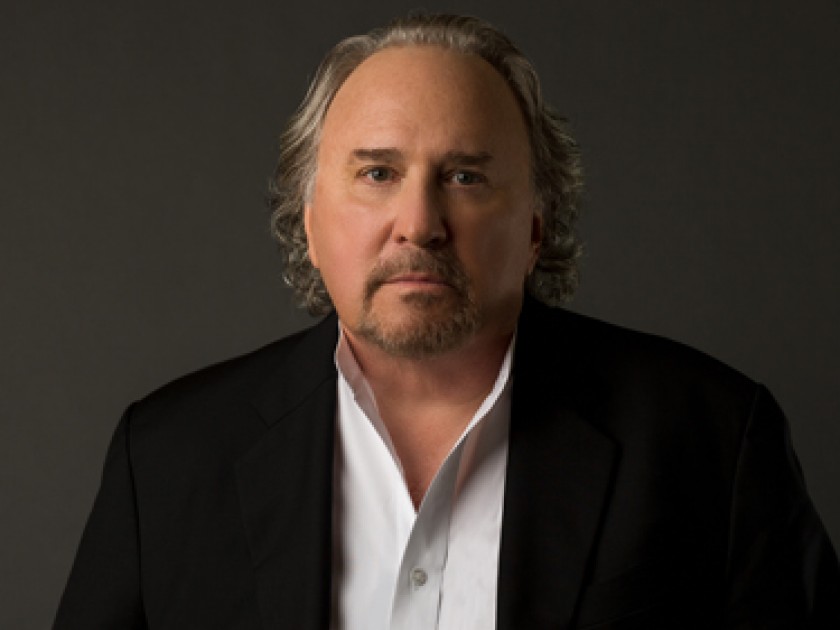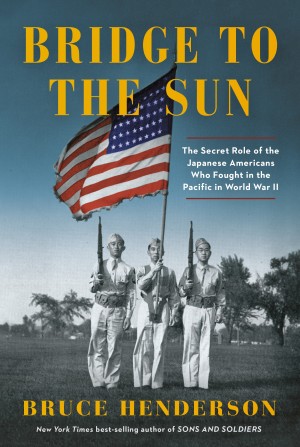
Celebrate Jewish Book Month with #30days30authors! JBC invited an author to share thoughts on #JewLit for each day of Jewish Book Month. Watch, read, enjoy, and discover!
Today, Bruce Henderson, the author of the bestselling book Sons and Soldiers: The Untold Story of the Jews Who Escaped the Nazis and Returned with the U.S. Army to Fight Hitler, on the the relevance of his most recent book to today’s news and the importance of immigrants to this country.
When I set out in Fall 2014 to write a book about the Ritchie Boys of World War II, I had no idea that this work of history would become so relevant to what was about to take place during and after the 2016 presidential election. Yet, that is exactly what happened when Sons and Soldiers: The Untold Story of the Jews Who Escaped the Nazis and Returned to Fight Hitler was published in July 2017. The theme and content of my nonfiction book walked right into today’s headlines for more than one reason, and unfortunately so.
I say unfortunately because it is terribly disheartening how some people deny history and its hardest lessons. Three weeks after my book’s release, the airwaves were filled with images of the hatred in Charlottesville; protestors wearing Nazi paraphernalia, carrying flags with swastikas, waving quotations by Adolf Hitler, while shouting Nazi slogans and antisemitic slurs such as “Jews will not replace us.” Then, the one thing that could make these scenes even worse happened: The leader of our country refused to condemn them.
Regretfully, I find it all too easy to make comparisons with the evil person I wrote about who rose to power in 1933 by skillfully subverting his nation’s democracy and promising to make Germany great again with the political neophyte of narcissistic tendencies who broadcasts a similar message while manipulating our own democratic institutions.
The six individuals profiled in my book are German Jews, who as boys were able to get out of their homeland in the 1930s, most of them saved by Jewish relief organizations. A number of these boys had to leave their families behind, and they lived in this country in foster homes or with distant relatives. Young men when war broke out, they went into the U.S. Army, which secretly trained them at Camp Ritchie, Maryland, to interrogate German prisoners of war and collect valuable intelligence. Before being sent overseas, they went before a federal magistrate and were sworn in as naturalized U.S. citizens.
Until the very moment when they numbered among the newest Americans, the Ritchie Boys were “enemy aliens” — immigrants from a country with which we were at war — and as such were openly distrusted in some quarters. Yet, they turned into enormous assets for our military in that they knew the language, culture and psychology of the enemy we were fighting better than anyone and were highly motivated to defeat them. (A postwar Army report found that nearly 60% of the most valuable intelligence gathered in Europe came from the teams of German-speaking Ritchie Boys.)
The wholesale demonization of immigrants is another of today’s headlines that resonates with the stories in Sons and Soldiers. With quotas being slashed and the residents of some countries banned from entering the U.S., there are inescapable parallels with America’s backward immigration policies of the 1930s. Too few immigrants from Nazi-occupied Europe were given entry into the United States, as our leaders refused to increase restrictive quotas set in 1920s at a cost of countless lives during those perilous times.
The current wave of anti-immigration policies, as well as efforts to paint all members of the world’s second largest religion as equally suspect, is not worthy of our history as the world’s great melting pot. After all, other than Native Americans, we are all from immigrant stock that came from elsewhere.
Just as those young men who served as Ritchie Boys during an earlier war, some of those individuals hoping to escape to our shores today could be assets in the new war we are fighting for which we need Muslim intelligence officers, interpreters, special forces operators, CIA officers and FBI agents.
As former Director of the CIA and Secretary of Defense Leon Panetta wrote to me after reading Sons and Soldiers: “The Ritchie Boys helped defeat the enemy that persecuted them and their families. The message of their courage and patriotism should not be lost in today’s war on terrorism.”
Bruce Henderson is the author of more than twenty nonfiction books, including Sons and Soldiers: The Untold Story of the Jews Who Escaped the Nazi and Returned with the U.S. Army to Fight Hitler, and True North: Peary, Cook and the Race to the Pole. He is the co-author of the #1 New York Times bestseller And the Sea Will Tell (with Vincent Bugliosi). An award-winning journalist who has taught reporting and writing at USC School of Journalism and Stanford University, Henderson lives in northern California.



